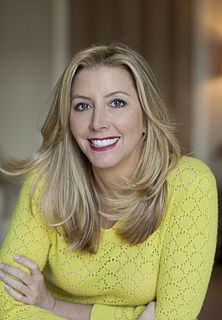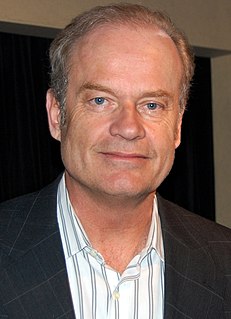A Quote by Louis Kronenberger
We are neurotically haunted today by the imminence, and by the ignominy, of failure. We know at how frightening a cost one succeeds: to fail is something too awful to think about.
Related Quotes
Failure's relative. I've always felt, even early on, if I lose the freedom to fail, something's not right about that. It's how you treat failure, too. There's something to learn from it. I've had movies that have failed colossally, so you kind of analyze your failures: What kind of failure was it? A failure because it's misunderstood by others? A failure because you misunderstood it yourself?
When I was growing up, my dad would encourage my brother and I to fail. We would be sitting at the dinner table and he would ask, 'So what did you guys fail at this week?' If we didn't have something to contribute, he would be disappointed. When I did fail at something, he'd high-five me. What I didn't realize at the time was that he was completely reframing my definition of failure at a young age. To me, failure means not trying; failure isn't the outcome. If I have to look at myself in the mirror and say, 'I didn't try that because I was scared,' that is failure.
So you think that you're a failure, do you? Well, you probably are. What's wrong with that? In the first place, if you've any sense at all you must have learned by now that we pay just as dearly for our triumphs as we do for our defeats. Go ahead and fail. But fail with wit, fail with grace, fail with style. A mediocre failure is as insufferable as a mediocre success. Embrace failure! Seek it out. Learn to love it. That may be the only way any of us will ever be free.
Do you think you can love too much? Or experience too much beauty, at the cost of too much pain? Do you think when art is defined by expressing so much beauty and so much pain, just to be able to cope with both - and bring other people something creatively beautiful at the cost of that pain - that we can draw a line of 'normalcy'? It's important to think about.
I think that there's room for everyone. I don't think that if one person succeeds then another must fail. That's lunacy. I'm not sure what the reasons are for my philosophy, maybe it's the fact that if there are ten people doing the same job, we all know how we feel and what our high points and low points are.
It is worth noting that 'too big to fail' is not simply about size. A big institution is 'too big' when there is an expectation that government will do whatever it takes to rescue that institution from failure, thus bestowing an effective risk premium subsidy. Reforms to end 'too big to fail' must address the causes of this expectation.






































